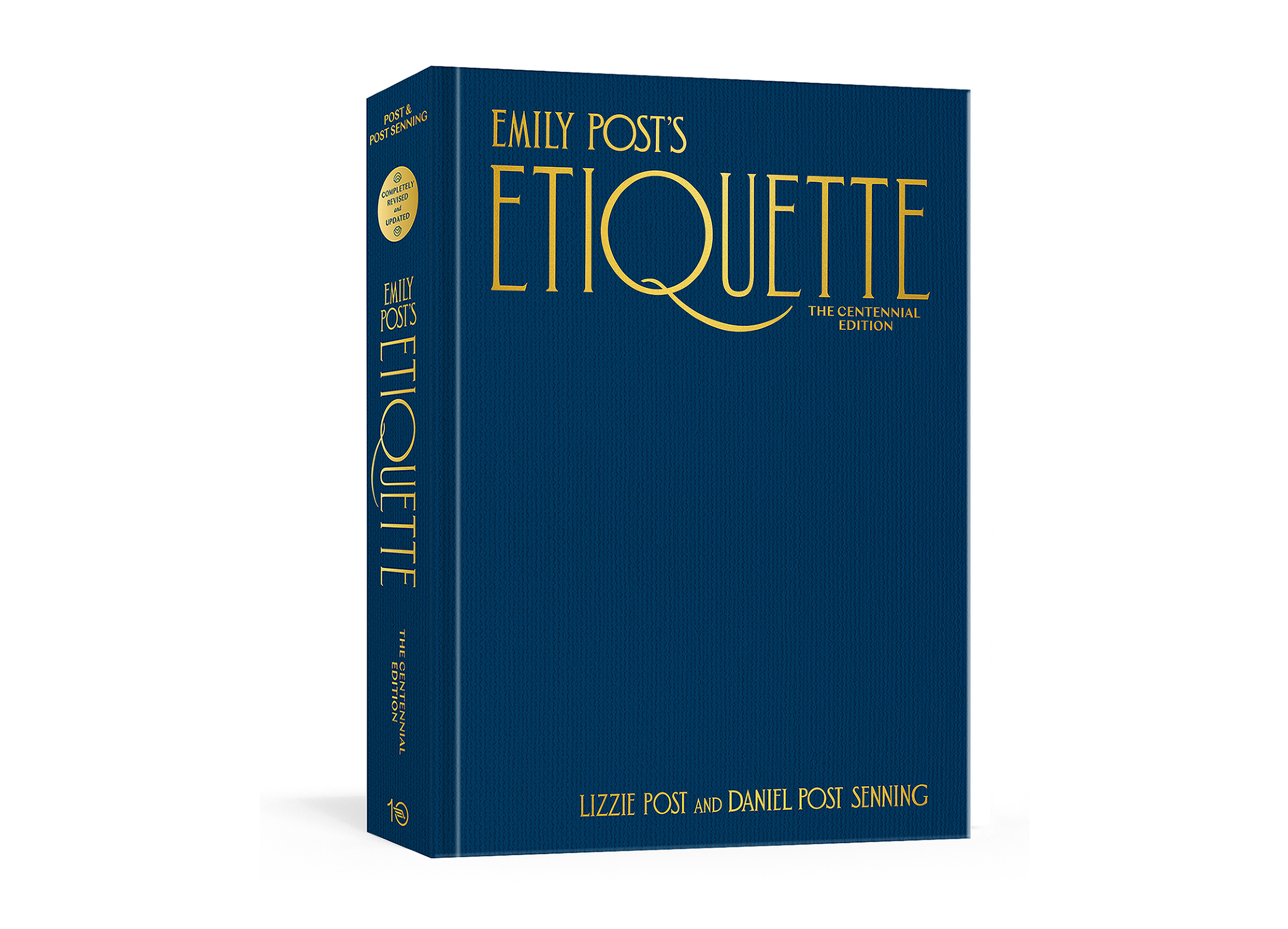Emily Post’s Etiquette is getting a modern revamp in honor of its 100th anniversary, with the guide being reworked by the famed socialite’s descendants.
Etiquette in Society, in Business, in Politics, and at Home, written by socialite Emily Post, has been the unofficial guide to manners for the past century. Since her death in 1960, Post’s descendants have updated the book several times to reflect the rise of technology and rapidly changing social dynamics. Despite the marketing of the book appealing to tradition, the newest edition is markedly progressive in its approach to modern manners, adding sections regarding the use of pronouns, “flaunting privilege,” and asking consent for gestures such as hugging.
THREE RULES OF ETIQUETTE TO ABANDON IN THE NEW DECADE

Lizzie Post, one of the authors of the updated edition, has attempted to make the book more accessible, trying to shed the reputation of the book as being for only the upper classes.
“I think mostly that it’s really easy to paint etiquette and manners as tools for elitism, tools for secrecy, tools for exclusion. When they are used that way, and they definitely can be, they are effectively useless,” Lizzie told the Associated Press. “But when we’re using etiquette and manners as a tool for self-reflection and awareness of others, I think we’re really going to have a chance to make the world a nicer place.”
The newest edition addresses “tech etiquette including video meetings, parties and classes, and how to politely handle devices, home security, and AI,” the profile for the book on the Penguin Random House website reads. It also includes guides for “tipping practices in the age of rideshares, tough times, and ever-prominent payment screens,” pronoun usage, and checking one’s privilege.
“Privilege can be and sound like many different things, but in conversation, it mostly comes across as a lack of awareness that you have benefited in a way others may not have,” one section read.
Using “proper” pronouns is stressed as a way to show “support, respect, and basic courtesy.”
“You might think someone’s pronouns are easy enough to tell just by looking at them, but the reality is this isn’t always the case,” one section reads. “If you don’t know someone’s pronouns, and you need to know them in order to make an introduction, asking is the polite thing to do: `Joan, what pronouns do you use?’ Note that you don’t ask what pronouns Joan ‘prefers’ — an unfortunately common construction for this question.”
The book also discusses consent for basic interactions such as hugging.
CLICK HERE TO READ MORE FROM THE WASHINGTON EXAMINER
“The hug is such an intimate gesture that, for some, an unwanted one can feel like a violation,” the new edition reads. “When someone doesn’t ask, pushes for one, or even forces it, they’re communicating that because they think it’s okay, they get to press their body against someone else’s. Depending on how it’s done, it can cross over into sexual harassment or assault.”
Emily Post’s Etiquette, The Centennial Edition, is on sale on Penguin Random House’s website.
